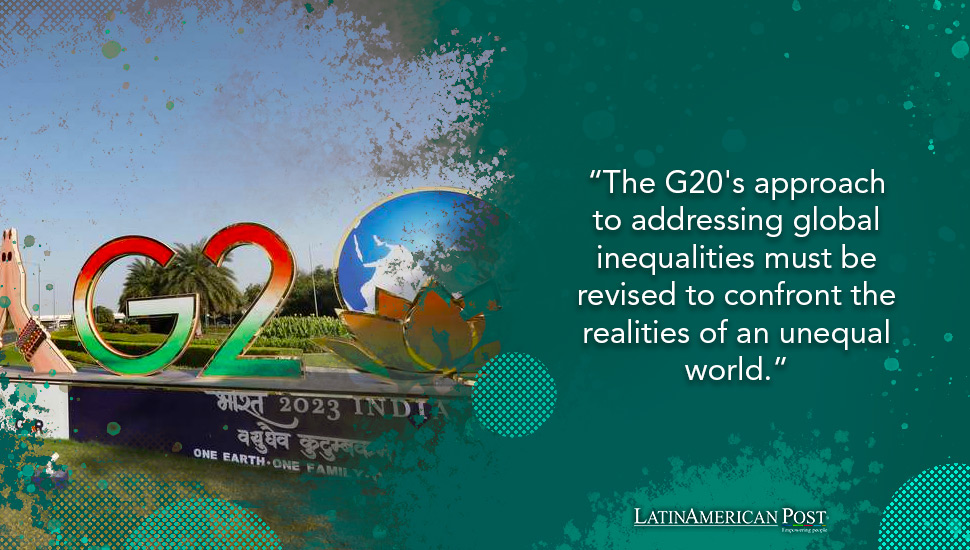Latin America Hosts G20 Summit: The Illusion of Addressing Global Inequalities Amidst Geopolitical Tensions

G20 Economy Ministers convened in São Paulo, Brazil, to tackle global inequalities and growth prospects, echoing Brazil’s focus on combating poverty and environmental transitions. The G20’s composition, comprising a mix of global economic powerhouses and emerging markets, reflects a diverse yet fractured landscape where competing interests often overshadow genuine efforts at collaboration.
Inaugurating Ambitions in São Paulo
In the heart of São Paulo, Brazil, the spectacle of the G20 Economy Ministers’ meeting unfolds, a gathering cloaked in the ambitious rhetoric of combating global inequalities amidst the shadow of geopolitical upheavals. The presence of global economic leaders, including the United States Janet Yellen and Argentina’s Luis Caputo, amidst the grand setting of the Biennial Pavilion, underscored a narrative of commitment and solidarity. However, beneath the surface of these declarations lies a complex web of challenges that starkly contrasts with the optimistic discourse of the summit.
Brazil’s Finance Minister Fernando Haddad articulated a vision for an inclusive G20 focused on poverty and inequality reduction. Yet, his remote participation due to COVID-19 health concerns symbolically reflected the disconnect between the summit’s lofty ideals and the tangible realities. As discussions unfolded, the chasm between the aspiration to address global inequalities and the practicalities of implementing substantive change was glaringly apparent.
The Challenge of Achieving “Strong, Sustainable, Balanced, and Inclusive Growth”
The narrative pushed forward by the G20, emphasizing “strong, sustainable, balanced, and inclusive growth,” rings hollow when confronted with the structural barriers to achieving such ideals. The persistent income disparities and wealth concentration across the globe underscore a reality where economic power remains ensconced within a privileged elite, leaving behind a vast majority struggling to navigate the vicissitudes of an unequal world.
This disjunction is further exacerbated by the summit’s inherently optimistic yet misleading expectations. The portrayal of the G20 as a pivotal arena for meaningful dialogue and action on inequality belies the intricacies of international diplomacy and the vested interests of powerful nations. While symbolizing regional solidarity, Latin American countries need to do more to mitigate the skepticism surrounding the summit’s capacity to effect real change amidst the entangled web of geopolitical tensions.
G20 and Broader Issues of International Economic Policy-Making
The argument against the productivity of the G20 in tackling global inequality is not merely a critique of the summit’s efficacy but a reflection on the broader issues of international economic policy-making. The optimistic facade of unity and commitment masks a more profound inertia, where substantive policy shifts and genuine collaboration are often sidelined to maintain the status quo. The disparity between the summit’s ambitious goals and the entrenched economic inequalities that pervade the global landscape raises pertinent questions about the viability of such gatherings in fostering real progress.
Also read: Tech Pioneers of the South: The Rising Tide of Startups Transforming Latin America’s Economy
In essence, while commendable in intent, the G20’s approach to addressing global inequalities must be revised to confront the realities of an unequal world. The challenges of translating high-level rhetoric into actionable policies and the complexities of international cooperation and competing national interests render the summit’s aspirations increasingly elusive. Without a concerted effort to bridge the gap between ambition and action, the quest for equitable global economic growth will remain a distant dream, overshadowed by the persistent realities of inequality and division.





